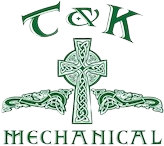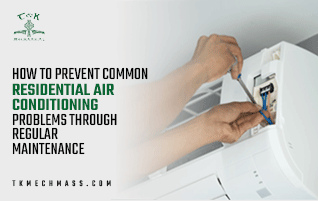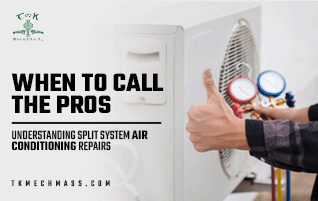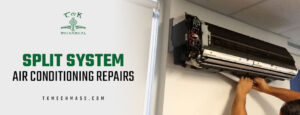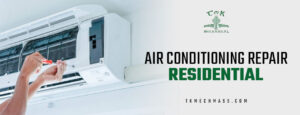Maintaining a comfortable indoor environment during the sweltering heat of summer is essential for homeowners. A properly functioning residential air conditioning system plays a crucial role in ensuring cool and refreshing air throughout your home. However, to avoid unexpected breakdowns and costly repairs, regular maintenance is key. In this comprehensive guide, we’ll explore effective strategies to prevent common problems through proactive maintenance practices.
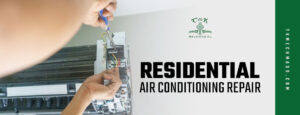
Importance of Residential Air Conditioning Repair:
Before diving into preventive maintenance tips, let’s emphasize the significance of residential air conditioning repair. A malfunctioning air conditioning system not only compromises indoor comfort but also leads to energy inefficiency and increased utility bills. By addressing minor issues promptly and investing in regular maintenance, homeowners can prolong the lifespan of their AC units and enjoy consistent cooling performance year-round.
Common Residential Air Conditioning Problems:
- Refrigerant Leaks: Refrigerant leaks are a common issue in residential air conditioning systems and can lead to reduced cooling capacity and increased energy consumption. To prevent this problem, it’s essential to schedule regular inspections with a qualified HVAC technician. During these inspections, the technician will check for leaks, repair any damaged components, and recharge the refrigerant levels to ensure optimal performance.
- Dirty or Clogged Air Filters: Dirty or clogged air filters restrict airflow, reducing the efficiency of your air conditioning system and potentially causing strain on the compressor. To prevent this problem, homeowners should change their air filters regularly, ideally every one to three months, depending on usage and air quality. Additionally, investing in high-quality air filters and scheduling professional duct cleaning services can help maintain optimal indoor air quality and prolong the life of your AC unit.
- Electrical Component Failure: Electrical component failure, such as capacitor or relay issues, can disrupt the operation of your residential air conditioning system. To prevent electrical problems, homeowners should ensure that all electrical connections are secure and free of corrosion. Regular inspections by a licensed HVAC technician can identify potential issues early on and prevent costly repairs down the line.
- Improper Installation of Air Conditioning System: Improper installation of air conditioning system can lead to a host of problems, including reduced efficiency, uneven cooling, and increased energy consumption. To avoid this issue, it’s crucial to hire a reputable HVAC contractor with experience in residential air conditioning installation. A professional installer will ensure that the unit is properly sized, correctly positioned, and installed according to manufacturer specifications, maximizing performance and efficiency.
Preventive Maintenance Tips:
1. Schedule Regular Professional Inspections: Regular inspections by a qualified HVAC technician are essential for identifying and addressing potential issues before they escalate into major problems. During these inspections, the technician will check all components of the air conditioning system, clean the coils, lubricate moving parts, and ensure proper refrigerant levels.
2. Clean and Replace Air Filters: Regularly cleaning or replacing air filters is one of the most effective ways to prevent common residential air conditioning problems. Dirty or clogged air filters restrict airflow, reduce efficiency, and strain the system’s components. Homeowners should check their air filters monthly and replace them as needed to maintain optimal performance.
3. Keep Outdoor Unit Clear: The outdoor unit of your air conditioning system should be kept clear of debris, vegetation, and obstructions to ensure proper airflow. Trim any vegetation around the unit and remove leaves, twigs, and other debris regularly. Additionally, homeowners should ensure that the outdoor unit is level and stable to prevent damage and ensure efficient operation.
4. Monitor Thermostat Settings: Monitoring thermostat settings and adjusting them according to your comfort preferences can help prevent unnecessary strain on your air conditioning system. Avoid setting the thermostat too low, as this can lead to increased energy consumption and wear and tear on the system. Instead, aim for a temperature that is comfortable while still allowing for energy efficiency.
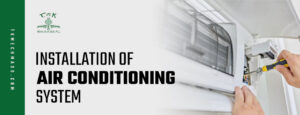
Conclusion:
Regular maintenance is essential for preventing common residential air conditioning repair problems and ensuring optimal performance and efficiency. By scheduling regular professional inspections, cleaning and replacing air filters, keeping the outdoor unit clear, and monitoring thermostat settings, homeowners can prolong the life of their AC units and enjoy reliable cooling comfort year-round. Investing in preventive maintenance now can save you time, money, and frustration in the long run, while also reducing your carbon footprint and environmental impact.
Follow us for more by visiting us at T&K Mechanical!
